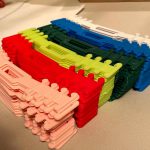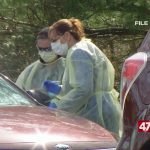During the coronavirus pandemic, America’s primary care practices are struggling financially as patient visits plummet and patients themselves are missing out on vital routine care. Increased telehealth visits have offset some, but not most, of those losses. If the trend continues, private practices are likely to go out of business or be bought by larger companies, reducing health care access.
As U.S. companies adapt to remote work, call centers are relaxing their requirements that employees work on-site, allowing them to tap into the population of people with disabilities who are eager to work but may have difficulty leaving the house. Employers are reportedly considering preserving the work-from-home model for many employees after the coronavirus lockdown lifts, which could provide more opportunities for people with disabilities.
New research, led by UD College of Education and Human Development Dean Gary Henry, has demonstrated that the key to implementing successful reform in low-performing schools is hiring and retaining effective principals and teachers. These findings, published in the academic journal Educational Evaluation and Policy Analysis, also note that teacher turnover and chronic absenteeism undermine potentially positive effects from these reforms.
Educators in Appoquinimink School District’s Project Lead the Way engineering program are using 3D printers to make face shields, which they have donated to several hospitals as well as Chimes Delaware, a community service provider for adults with intellectual and developmental disabilities. What started as an effort for family members and acquaintances has since grown into an operation that has created hundreds of masks and received orders from medical facilities including Christiana Hospital and Middletown Emergency Department.
Beebe Healthcare has been able to raise almost $700,000 for its COVID-19 relief fund through donations from individuals, organizations and businesses. A Beebe executive says the hospital has spent more than $3 million on COVID-19 care so far. The relief funds are helping to secure more protective gear and lab testing equipment and expand telehealth services.





